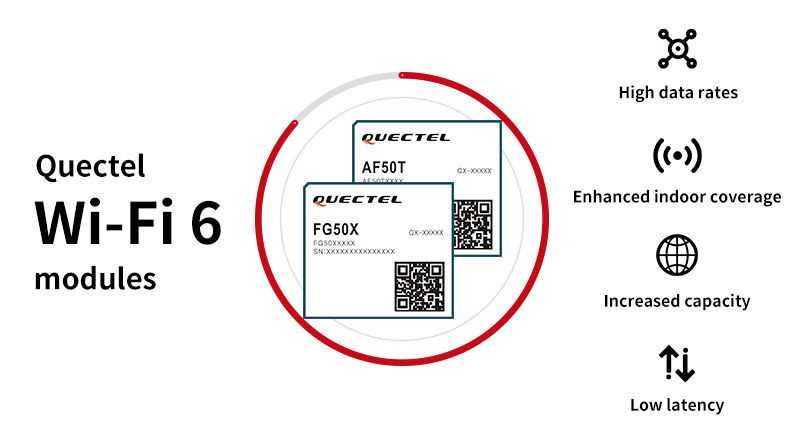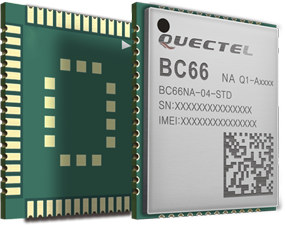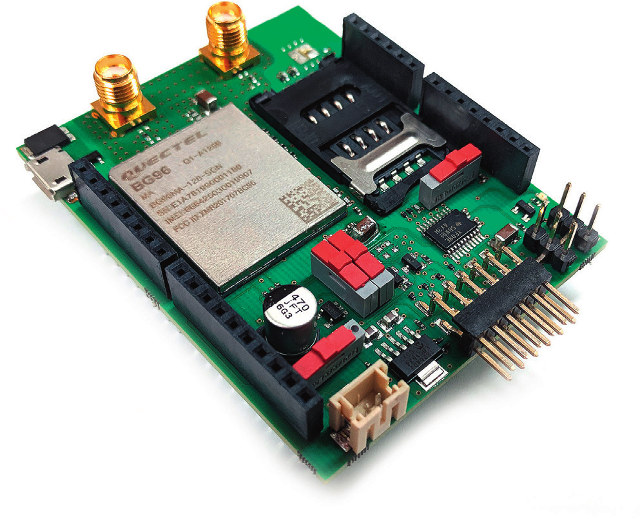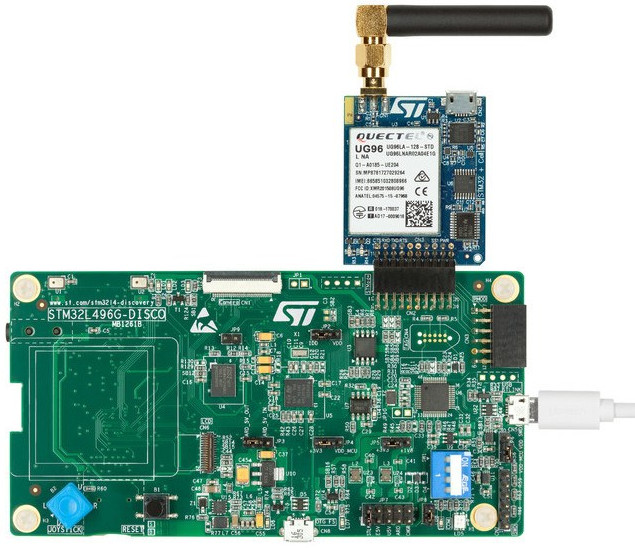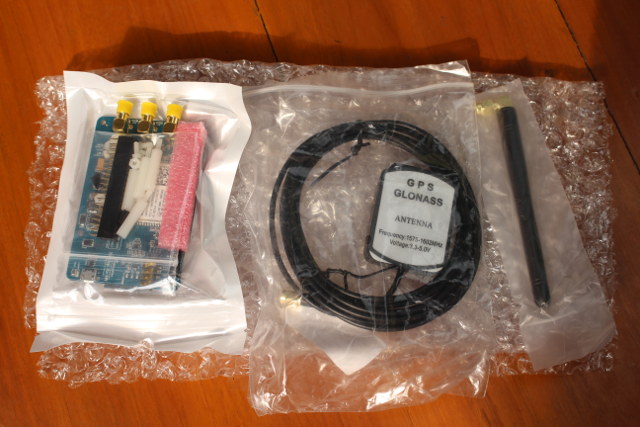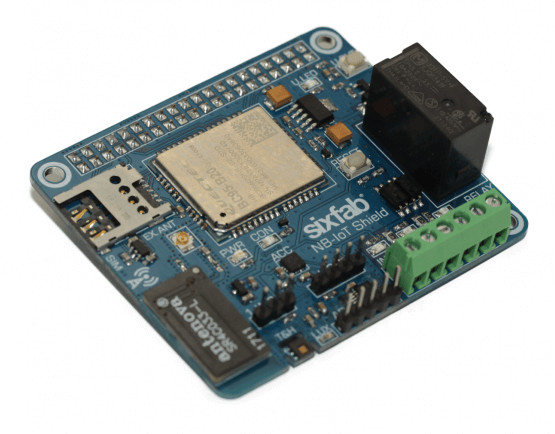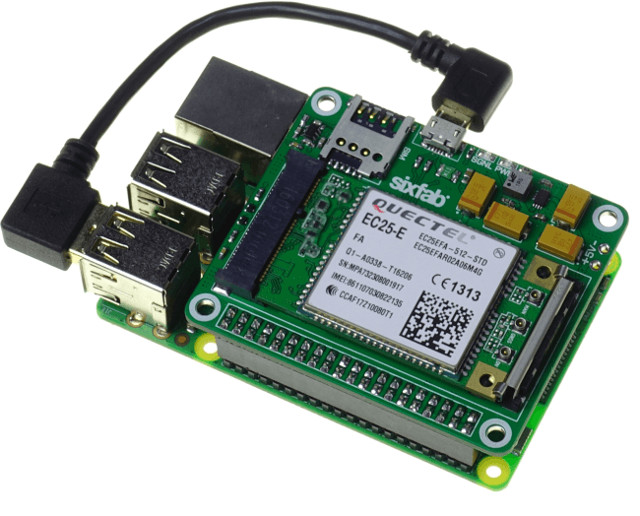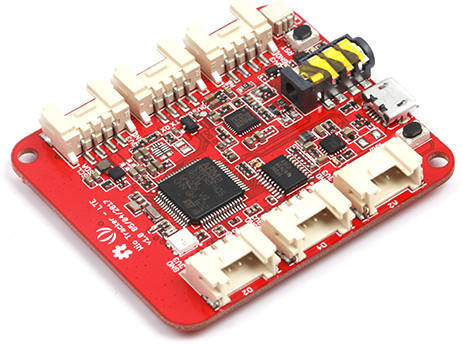The new 802.11ax standard (WiFi 6) used to be mostly found in premium smartphones, laptops, and routers, but now WiFi 6 is starting to gain more traction as we’re seeing WiFi 6 modules designed for other applications such as u-Blox JODY-W6 WiFI 6 + Bluetooth 5.1 module designed specifically for automotive applications. Quectel has now announced its own WiFi 6 modules with FG50X industrial-grade WiFi 6 module based on Qualcomm FastConnect 6800, as well as AF50T automotive-grade module powered by Qualcomm QCA6696 802.11ax chip. The former will be found in premium consumer & industrial products such as smart homes, smart TVs, over-the-top (OTT) devices, industrial controls, and customer premises equipment (CPE), while the latter will power “the Internet of Vehicles” applications such as in-vehicle infotainment and on-board diagnosis (OBD). Both also happen to support Bluetooth 5.1. Shared features: 802.11 ax WiFI 6 and Bluetooth 5.1 connectivity, backward compatible with 802.11a/b/g/n/ac […]
Arduino Support for Quectel BC66 NB-IoT Module
Quectel has several LTE IoT modules such as BG96 with NB-IoT + eMTC connectivity, but the company has also a smaller, cheaper NB-IoT only module called Quectel BC66, and Georgi Angelov (Wiz-IO) informed me he implemented Arduino support for the module with BC66-DVK board. Let’s first have a look at BC66 specifications: Frequency Bands Available now – B1/B3/B5/B8/B20 Under development – B2/B12/B13/B17/B18/B19/B25/B26/B28/B66 Output Power – 23dBm ±2dB Sensitivity – -129dBm Data Data Rate Single-Tone: 25.5kbps (DL)/16.7kbps (UL) Multi-Tone: 25.5kbps (DL)/62.5kbps (UL) Protocol Stacks – UDP/TCP/CoAP/LwM2M/SNTP/MQTT/PPP/TLS/DTLS/HTTP/HTTPS/FTP SMS – Text/PDU Mode Interfaces – 1x USIM, 1x PSM _EINT, 3x UARTm 1x ADC, 1x RESET, 1x PWRKEY, 1x NETLIGHT, 1x antenna, 1x SPI, “OpenCPU” version only: 1x I2C, 1x I2S, and configurable GPIO Supply Voltage – 2.1 to 3.63V (3.3 typ.); I/O: 1.8V Power Consumption (Typ.) 3.5μA @PSM 0.29mA @Idle Mode (eDRX=81.92s) 0.43mA @Idle Mode (DRX=2.56s) 110mA @LTE Cat NB1, 23dBm Dimensions – […]
Avnet Silica NB-IoT Sensor Shield Works with mbed OS 5, STM32 Nucleo Board
If for some reasons, none of the many NB-IoT boards launched recently suit your needs, there’s yet another option with Avnet Silica NB-IoT sensor shield, that supports – despite the name – also supports LTE Cat M1 (eMTC) beside NB-IoT (LTE Cat NB1), and comes with Arduino headers, as well as a Pmod connector. The board relies on Quectel BG96 module, and can be controlled with Arm mbed OS 5 when connected to STM32 Nucleo board. NB-IoT Sensor Shield specifications: Cellular Module – Quectel BG96 LPWA Module Multi Modes: Cat.M1, Cat.NB1, EGPRS Global bands Cat M1/NB1: B1 B2 B3 B4 B5 B8 B12 B13 B18 B19 B20 B26 B28 B39 (B39 for Cat M1 only) EGPRS: 850/900/1800/1900 MHz Voice Over LTE support (M1 only) – PCM digital audio interface SIM card holder (also optional embedded SIM) Optional GNSS – GPS, GLONASS, BeiDou/Compass, Galileo, QZSS Expansion – Arduino headers, Pmod connector […]
STMicro Introduces Two STM32 Discovery Kits with 2G/3G or 4G LTE-IoT Cat M1/NB1 Connectivity
Embedded World 2018 trade fair will take place on on take place on February 27 – March 1 in Nuremberg, Germany, and we’re starting to see some company announce new products and solutions for the embedded market. STMicro has just announced their showcase their very first cellular development kits at the event, based on a display-less variant on their 32L496GDISCOVERY Discovery board with cellular add-on boards: P-L496G-CELL01 Discovery kit with with a 2G/3G modem P-L496G-CELL02 Discovery kit with with an LTE-IoT Cat M1 (eMTC) / NB1 (NB-IoT) / 2G model Now the company has not started designed their own cellular modem, but instead relying on QUECTEL modems. Both kits share most of the same specifications: MCU – STMicro STM32L496AGI6 Arm Cortex M4F MCU@ 80 MHz with 1 MB Flash, 320 KB RAM in a UFBGA169 package On-board memory – 8 Mbit PSRAM On-board + external storage – 32 KB I2 […]
How to Use 3G and GPS on Raspberry Pi with ThaiEasyElec 3G HAT Expansion Board
Venus Supply is an embedded systems company based in Bangkok, Thailand that sells products through their ThaiEasyElec website/brand, as well as a act as a local distributor for popular DIY electronics items. I previously tested their ESPino32 ESP32 board, and the company has now send me another of their new product called “3G HAT Expansion for Raspberry Pi” and based on Quectel UC20-G that support 3G and GPS/GLONASS connectivity globally, meaning it should work in any country with 2G or 3G coverage. After listing the specifications, going through unboxing and assembly with a Raspberry Pi 2/3 board, I’ll write some quick start guide to show what I had to do to use GPS and connect to 3G with a Hologram SIM card. 3G HAT Expansion for Raspberry Pi Specifications Quectel UC20-G wireless module supporting Cellular 3G – UMTS @ 800/850/900/1900/2100 MHz 2G – GSM @ 850/900/1800/1900 MHz Data – HSPA+ […]
Sixfab Launches Arduino and Raspberry Pi NB-IoT Shields with Four Sensors
SixFab previously introduced a 3G/4G base shield for the Raspberry Pi boards that would take Quectel based mini PCIe card in order to add cellular connectivity to the popular development boards. The company is now back with NB-IoT shields that should better suited to IoT projects with lower hardware and data costs, and support either 40-pin Raspberry Pi boards or Arduino. SixFab Raspberry Pi NB-IoT Shield Specifications & features: Module – Quectel BC95-B20 NB-IoT Module supporting 800MHz frequency (suitable for the European market) Micro SIM card socket, PCB Antenna and u.FL socket for external antenna I/O expansions 4x Channel 12-bit ADC via ADS1015 Relay with optocoupler protection (24V DC, 120-220V AC Switching) 3-pin 1-Wire interface for DS18B20, DHT21, etc… 4-pin I2C interface 3.3V reference voltage Sensors MMA8452Q 3-axis accelerometer HDC1080 temperature sensor (-40 to +125 °C) HDC1080 humidity sensor (0 to 100%) ALS-PT19 ambient light sensor Misc – User button […]
SixFab Launches Raspberry Pi 3G-4G/LTE Base Shield V2 for $31.20
Development boards with 4G LTE are still quite expensive, at least compared to 2G or 3G solutions, with for example Wio LTE GPS Tracker board selling for around $100. So when I saw Sixfab introducing a 3G/4G shield for Raspberry Pi 3 for just $31.20 (pre-orders), I first thought it was an incredible deal. But I soon realized I missed the “base” word in the name, as the shield just includes the SIM card slot, and mPCIe connector where you can connect Quectel’s UC20-G Mini PCle 3G module or EC25 Mini PCle 4G/LTE Module which adds respectively $59 or $89 to the price. That’s still an interesting HAT board, so let’s have a look. Raspberry Pi 3G-4G/LTE Base Shield V2 specifications: Clip-in Mini PCIe socket for: 4G/LTE Module (Quectel EC25) up to 150Mbps downlink and 50Mbps uplink data rates, GPS/GLONASS 3G Module (Quectel UC20) up to 14.4Mbps downlink and 5.76Mbps […]
Wio LTE GPS Tracker Board Comes with a 4G Modem, Supports Espruino Firmware (JavaScript Programming)
Seeed Studio launched Wio GPS tracker with a 2G GSM module a few months ago, and while it should work in some countries, others are phasing out 2G networks, and only support 3G or 4G. The company has now launched an update with Wio LTE board with the same form factor, and most of the same features except they replaced the 2G/Bluetooth/GNSS module with a 4G LTE/GNSS module, and Atmel SAMD21 ARM Cortex M0+ microcontroller by an STMicro STM32 ARM Cortex-M4F MCU. Wio LTE board specifications: MCU – STMicro STM32F405RG ARM Cortex M4F MCU @ 168 MHz with 1MB flash, 192+4KB SRAM Storage – micro SD slot Connectivity via Quectel EC21-A (America) module LTE Cat.1 modem: FDD LTE: B2/B4/B12 WCDMA: B2/B4/B5 AT Command: 3GPP TS27.007 and enhanced AT Commands Data – LTE-FDD Max 10Mbps(DL) Max 5Mbps (UL) NanoSIM card 2x u.FL antenna connectors GNSS – GPS/BeiDou/GLONASS/Galileo/QZSS with 1x u.FL GNSS […]


